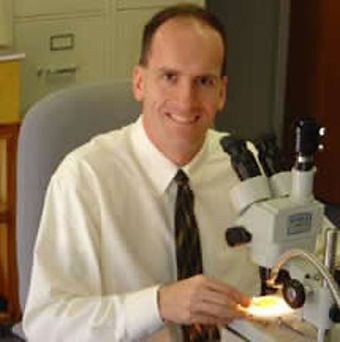
2024 Producers Conference Speakers
2024 Producers Conference Speakers
Glen Rabenberg
Glen Rabenberg is an internationally known speaker, soil expert, CEO, and organic farmer. His areas of expertise are soil remediation, high quality crop production, organic farming practices, and animal health. He explains through storytelling and humour how simply correcting the cause can decrease a farmer’s input costs, improve crop quality, build soil resiliency, and restore the agro-ecosystem.
Glen is often called on to speak at industry events to present on the subject of soil compaction, water penetration, organic weed control, crop quality, and animal health.
Prior to becoming involved in soil restoration, Glen’s journey began in the animal pharmaceutical industry. Many of the diseases he was employed to treat were the result of nutritional deficiencies from the grains and forages the animals were consuming. Glen has proven that by increasing the oxygen content of the soil and building the carbon content of the plant, we can correct the cause of most agricultural problems rather than react to their symptoms.
Glen maintains his third generation organic farm in Bancroft, SD. He is CEO of Soil Works LLC, extensively travels the world speaking on soil restoration, and is the innovator behind GSR Calcium.

Dr. Thomas Dykstra
Dr. Thomas Dykstra is the Laboratory Director of his own lab, Dykstra Laboratories in Gainesville, Florida and serves as the scientific advisor for Advancing Eco Agriculture. For 25 years, he has studied bioelectromagnetics (how electromagnetic fields affect life), especially as it relates to insects. He holds entomology degrees from Cornell University as well as the University of Florida and has been awarded seven patents with one patent pending.
Dr. Dykstra consults for farmers, agricultural companies, tech firms, attorneys, international governments, and insurance agencies. He has visited three continents and presents lectures on diverse topics covering entomology, olfactory physiology, biophysics, paramagnetism, neurobiology, and biological antennae.
In terms of active research, Dr. Dykstra deciphered the insect olfactory code back in 2016 and characterizes chemoreceptors for various medical and agricultural insect pests. He teaches both farmers and agricultural consultants how to raise healthy crops for their families and for profit.

Dr. Robert Faust Ph.D | Agronomy, Integrated Pest Management Advisor/Agroecologist
Faust Bio-Agricultural Services, Inc. (AKA BioAg) was started by Robert and Carly Faust in the early 1980’s as a farm service company. In 2005 they moved from their coffee farm in Hawaii to the Willamette Valley of Oregon and purchased a farm and manufacturing facility in order to expand their products offering.
Robert Faust's education includes conventional and alternative studies. He attended the University of Delaware College of agriculture where his major was entomology and applied ecology. Later he received a B.S degree from University of the State of New York, an accredited university in Albany, New York. His Masters of Science is in Agronomy where his thesis was field research on the use of ecological and organic methods for crop production and the use of humates and bio-based fertilizers in large-scale production in Idaho. The studies and research were under the supervision of Professor John I. Mosher who was Robert Faust's mentor for his M.S. and PhD studies.
The PhD work included studies of agro-ecological concepts and development of an integrated biological system for production of fungal biomass used for livestock feed and methods described for extraction of fungal biomass for medicines. The thesis was an original plan and concept, in detail, of solar pond technology combined with an integrated system of biomass conversion, which produced aquaculture species as well as other by-products, derived from mass fungal culture methods.
He received his PhD from Columbia Pacific University, an unaccredited alternative university in San Rafael, California authorized to grant degrees by the State of California. At the time organics was in its infancy and this was the only way to pursue alternative studies like organic and biodynamic agriculture or integrated biomass conversion systems. Dr. Mosher was the head of the biology department at the U. of N.Y at Brockport, N.Y. and was an expert on biodynamic agriculture with published papers on alternative agricultural methods.
Dr. Faust was not interested in the status quo of agricultural institutions, which of course were going in the direction of chemical agriculture and the use of genetically engineered organisms. He wanted a different direction and was impressed by the Columbia Pacific University program and Dr. Mosher, who was a visiting professor at University of California at Bakersfield. Unfortunately, the university closed in 2000.
Dr. Faust lived in California for many years where he was a licensed pest control advisor and IPM specialist who advised organic farmers on soil and pest management, conducted contract bio-pesticide research, and was a commercial sales manager for Safer inc. a company that produced and sold alternative pest management products. Contract pest management research was done for Ecogen, Rhone-Poulenc, Ciba Geigy. He also conducted organic certification inspection and consulting with the organic farmers in Hawaii.
Dr. Faust is a leading expert in agroecology providing integrated services throughout the world including the United States, Egypt, Belize, Jamaica and Mexico to assist in reducing dependency on chemical fertilizers and pesticides using new biotechnology and foliar fertilizers to increase crop yields and create sustainable systems.

Ed Kelly
Ed Kelly is President of Kelly Research Technologies, a second-generation family business that has been manufacturing top quality radionic instruments for 46 years. Ed is uniquely qualified in the field of radionics, with a lifetime of experience building instruments, conducting research, and sharing articles, books, and classes on the world of subtle energy. Ed will be talking all about Finding Energy. The world around us is a living tapestry of energy and vibration. KRT President Ed Kelly will point out some of the ways we perceive and use this energy in daily life, then share tips and techniques for improving our connection to this boundless resource.

